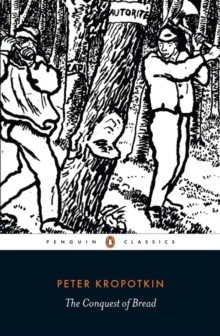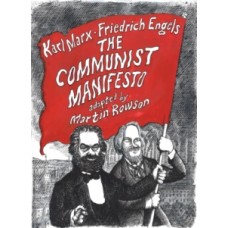He goes on to propose a more decentralized economic system based on mutual aid and voluntary cooperation, asserting that the … More
Tag: communism
Born OTD n 1915, Trinidad-born journalist & activist, Claudia Jones. As a member of the Communist Party USA & a black national feminist, Jones identified with black women’s oppression, known as triple oppression. Her focus was on “an anti-imperialist coalition, managed by working-class leadership, fueled by the involvement of women.” However, Jones was often considered more radical than Marx because she did not believe that capitalism was the only oppressor contributing to sexism and racism.
An elected member of the National Committee of the Communist Party USA (CPUSA), Jones also organised and spoke at events. … More
First published OTD in 1848, The Communist Manifesto. Published to coincide with the 200th anniversary of Marx’s birth (2018), at a time of deep mistrust in The Establishment, The Communist Manifesto is both a timely reminder of the politics of hope and a thought-provoking guide to the most influential work of political theory ever published.
Much of what Marx and Engels’ proposed – a state education system, a progressive income tax, the nationalisation of banks … More
Born OTD in 1842. Russian Zoologist, economist, geographer, and philosopher, Peter Kropotkin. Writing partly in response to Social Darwinism, Kropotkin draws on his scientific knowledge to illustrate the phenomenon of cooperation. After examining the evidence of cooperation in nonhuman animals, pre-feudal societies, medieval cities, and in modern times, he concludes that cooperation and mutual aid are the most important factors in the evolution of the species and the ability to survive.
“In the animal world we have seen that the vast majority of species live in societies, and that they find … More
Born OTD in 1820, Friedrich Engels. Much of what Marx and Engels’ proposed – a state education system, a progressive income tax, the nationalisation of banks – would continue to be at the heart of political debate into the 21st century. It is no surprise, perhaps, that The Communist Manifesto (as it was later renamed) is the second best-selling book of all time, surpassed only by The Bible.
The Guardian’s editorial cartoonist Martin Rowson employs his trademark draughtsmanship and wit to this lively graphic novel adaptation of Marx … More
The Union of Soviet Socialist Republics was a place that really existed, but it is long dead. By now, the word “Soviet” should be as meaningless as “Hapsburg”. Yet it endures, as in the wave of “de-communisation” in Ukraine or the strange idea that the capitalist government in Russia is “Communist”. But does the Soviet experience have anything to teach us today, or was it just an enormous cul-de-sac, a nuclear-armed reincarnation of the Russian Empire?
This book tries to find out, through walking the towns and great cities of the USSR, in an itinerary that … More






